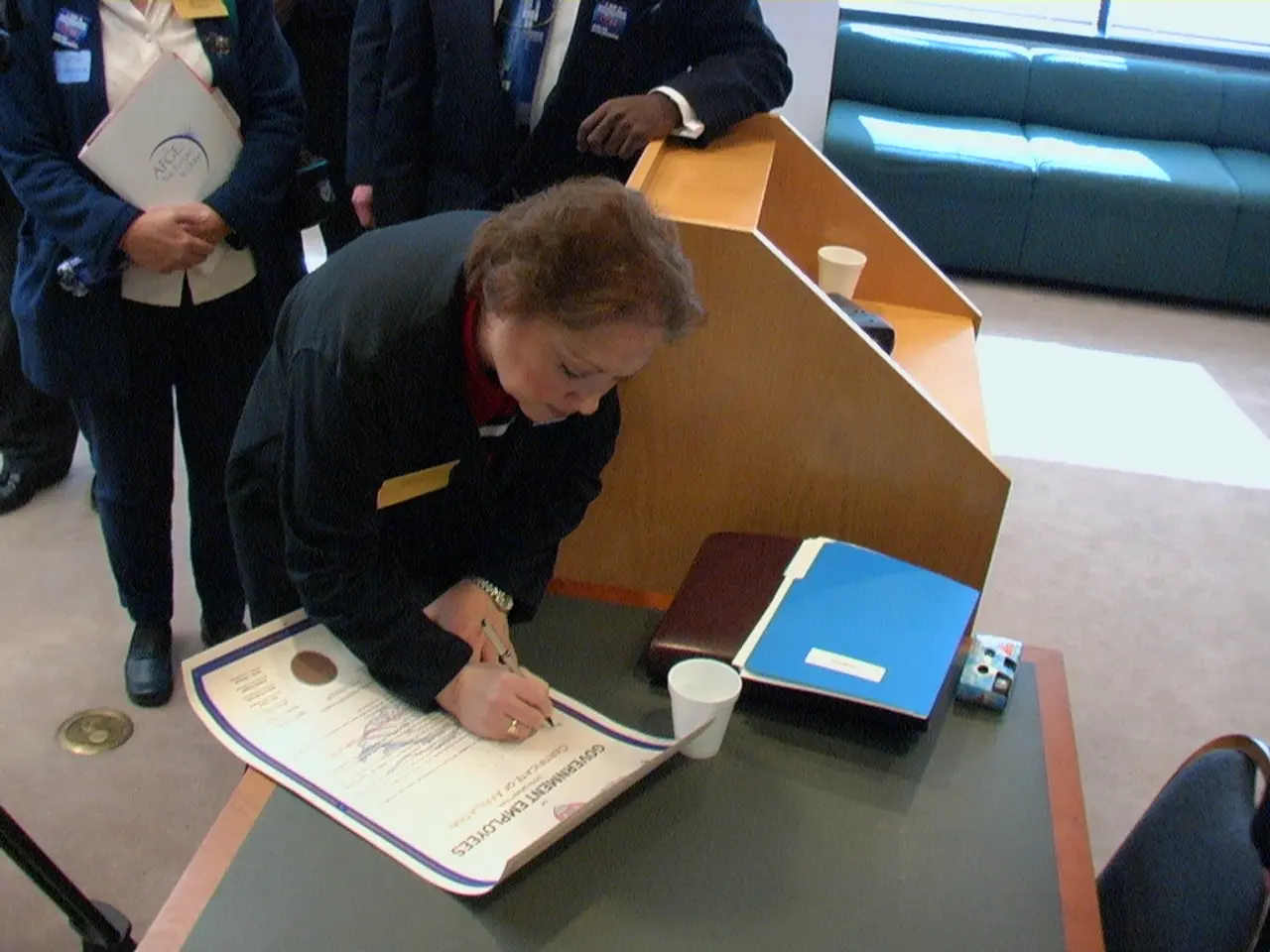Three humanitarian groups sue National Endowment for the Humanities over alleged dismantling actions
In an unusual turn of events, three prominent humanities organizations have taken legal action against the National Endowment for the Humanities (NEH) and the Department of Government Efficiency (DOGE). This lawsuit aims to undo the drastic budget cuts that occurred in April, reducing the NEH's budget from $210 million to $145 million, and slashing around 65% of its staff.
On May 1, this suit was filed in the United States District Court for the Southern District of New York. The plaintiffs, the American Historical Association, the Modern Language Association, and the American Council of Learned Societies, protest these cuts that they deem as decimating the NEH.
In a statement, Joy Connolly, the president of the American Council of Learned Societies (ACLS), stressed the importance of the NEH in the United States' democratic system. Connolly claimed that these deep cuts will impede quality-of-life improvements and research progress for countless scholars, jeopardizing the organizations and community-initiatives supported by the NEH.
If not halted, the humanities leaders stated, the uncompleted and wasted taxpayer-funded projects and research will potentially lose hundreds of millions of dollars. Furthermore, these dismantling efforts will discontinue the crucial work of the NEH in fostering the humanities, which is a responsibility mandated by Congress.
The plaintiffs represent tens of thousands of individuals and organizations that rely on NEH grants and funding for their humanities projects. They assert that the ongoing dismantling of the NEH will bring fatal consequences for the humanities ecosystem and community-based initiatives across the nation.
The lawsuit also names four individuals as defendants: Michael McDonald (acting chairman of the NEH), Amy Gleason (acting administrator of the United States DOGE Service), Nate Cavanaugh, and Justin Fox (reportedly employees of the U.S. DOGE Service or General Services Administration).
According to former and current NEH employees, Cavanaugh and Fox forced the termination of a vast majority of NEH grants. The lawsuit also mentions that DOGE lacks legal authority to make these decisions, causing these cuts to be "ultra vires" and unlawful.
As of now, the NEH and DOGE have not responded to requests for comment. Meanwhile, the Mellon Foundation announced emergency funding of $15 million to provide immediate support to 56 state councils and jurisdictions affected by the NEH funding cuts.
"The NEH leverages its small budget to support humanities programs across the country," expressed James Grossman, executive director of the American Historical Association. Grossman added, "We cannot deny our nation's divisions. We cannot heal these divisions unless we understand them. It makes no sense to eviscerate the agency that helps Americans understand and bridge human thought and interaction."
- The Modern Language Association, along with the American Historical Association and the American Council of Learned Societies, have pointed out in their lawsuit that the severe cuts to the National Endowment for the Humanities (NEH) could potentially lead to the loss of hundreds of millions of dollars in ongoing and uncompleted projects, affecting both scholars and various community initiatives across the nation.
- In light of the NEH's crucial role in fostering the humanities, education, and self-development, Joy Connolly, the president of the American Council of Learned Societies, fears that the deep cuts to the NEH's budget could jeopardize the quality-of-life improvements and research progress for countless scholars, ultimately dismantling the vital work of the NEH in the United States' democratic system.
- In the midst of the debate surrounding the NEH's budget cuts, the Mellon Foundation recognized the urgent need for support and announced emergency funding of $15 million to help 56 state councils and jurisdictions affected by the funding cuts, emphasizing the significance of humanities programs in fostering understanding and bridging human thought and interaction.




